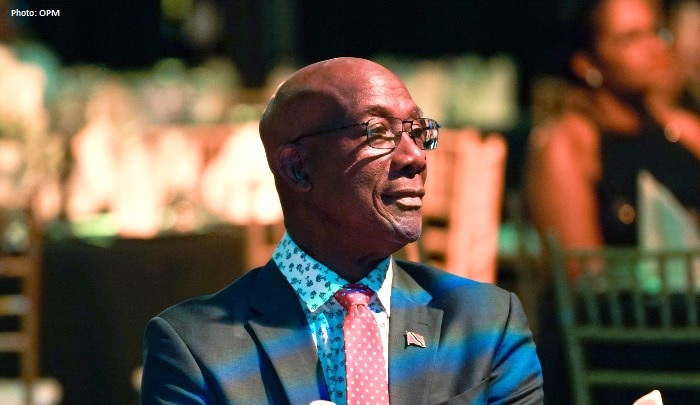Below is a message from Prime Minister Dr Keith Rowley on the occasion of Divali.
Fellow Citizens,
Today, across Trinidad and Tobago we all celebrate with members of the Hindu community the religious Festival of Lights, Divali.
The celebrations of lit-houses and public spaces should be seen as a tribute to us all, as a people, for within the past four decades or more, this event has grown into a truly national event, with its religious significance being upheld as sacred and its essential truths being increasingly understood.
To these celebrations, I bring the greetings of the Government of the Republic of Trinidad and Tobago, my family and myself, as Prime Minister.
Divali is part of the Hindu community’s canopy of festivals. It represents a spiritual victory of light over darkness, good over evil, knowledge over ignorance – themes which find great relevance in our modern Trinidad and Tobago.
Hinduism as we know it, came with the indentured labourers who began arriving here from India in 1845. Since the late 20th century this community has flourished, with some researchers citing it now as among the most distinctive communities in the Indian diaspora.
For centuries, it was dismissed by the West as “another oriental religion” but in the turning tide of the past century its complex philosophy, with its unique path of enlightenment has been acknowledged.
It has since been recognised as born out of a civilization, once considered as a “centre of wisdom” that dates back around 1500 BCE.
Those origins reveal its early artistic development, architecture, linguistic sophistication, richness in mythology, philosophy, and theology.
The religion’s vast array of practices, rituals, and sacrifices, is intended to enhance the focus and consciousness, in our quest for enlightenment on the path to becoming one with God.
Let us dwell on the spiritual theme of “knowledge over ignorance”, because here I recognise its relevance to our nation, at this time. Even as an ever-increasing number sponsor divisiveness, practice hypocrisy, encourage ingratitude and glorify hatred, true Hinduism sees knowledge as beyond the mere acquisition of information. It holds knowledge instead as the path to seeking, knowing, understanding, and feeling God’s presence in our every action.
The holy “Bhagavad Gita” also speaks of “Knowing God,” offering a road map to unveiling the mysteries of life, and what appears to be a lament that out of the billions of humans, only a few truly seek God, and even fewer gain a true understanding of His divinity.
We must recognise that modern man is at a crisis point. It is said that we know so much yet understand so little about ourselves. One aspect of that crisis has been our loss of faith, or a belief in God’s Divine force in our daily lives. Our nation is at a crossroads in a turbulent and uncertain world. It is in times like these that the true teachings of The Bhagavad Gita and I dare say, the Quran and the Bible provide valuable underpinnings for a nation whose youth and even many adults are existing without the moral and spiritual upliftment necessary to guide us to that place of safety, comfort and progress.
Progress has meant an improved quality of our life but has come with a great emotional toll. Today, the science laboratory is increasingly replacing places of worship.
In its wake, some are now returning to basic questions about life’s meaning, such as “Who am I, really?” with variants of “Where am I going in my life?”“What sort of person, or life should I lead?” “Where is meaning in my life?” “Who or what should I turn to?”
Divali, in its spiritual quest, also raises the other themes of light over darkness and good over evil. This then is a time for each citizen to look and question, with naked honesty, and detachment, his and her deep personal self, asking whether themes such as “darkness” reside within our daily lives.
We may question whether our days are filled with the “darkness” of egotistical thinking, greed, yearning, jealousy, anger, fear, grief, lust, envy, and hatred, along with the modern enslavement of various addictions.
Implicit in the themes of Divali, I also see that of individual responsibility, a call to all people to take ownership of their lives.
I see Divali as reminding us of the need for Divine therapy, our communication with God, on one hand, and our duties and responsibilities as citizens of our great country, on the national level.
Let us continue to spread the light of Divali, across our beloved Trinidad and Tobago.
ShubhDivali!



Responses